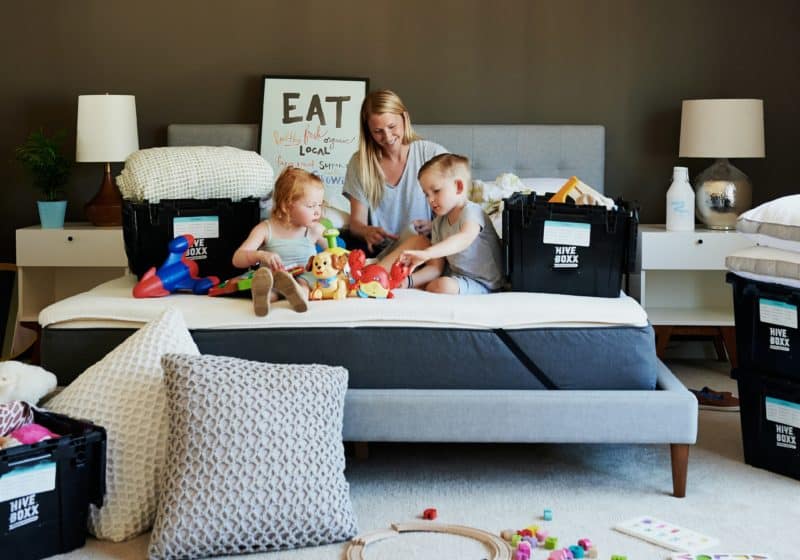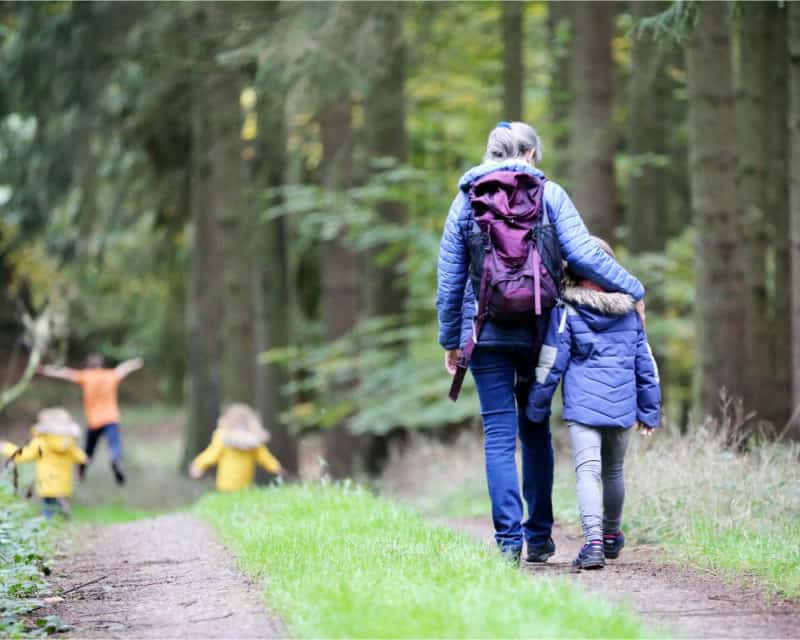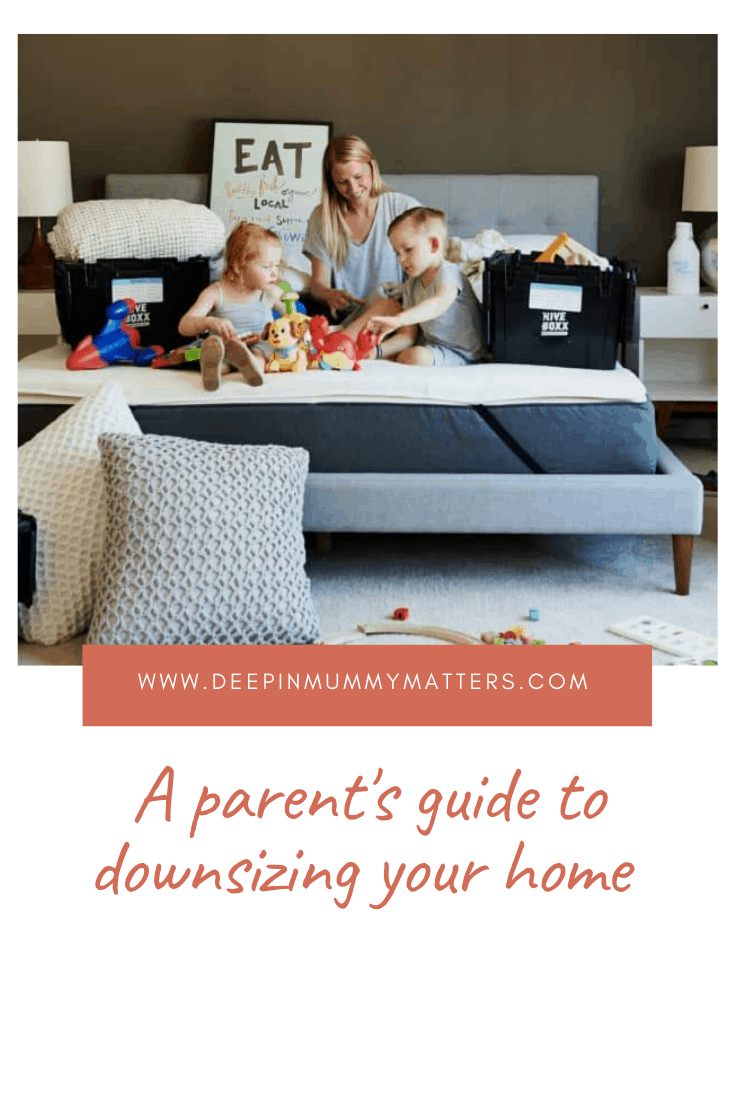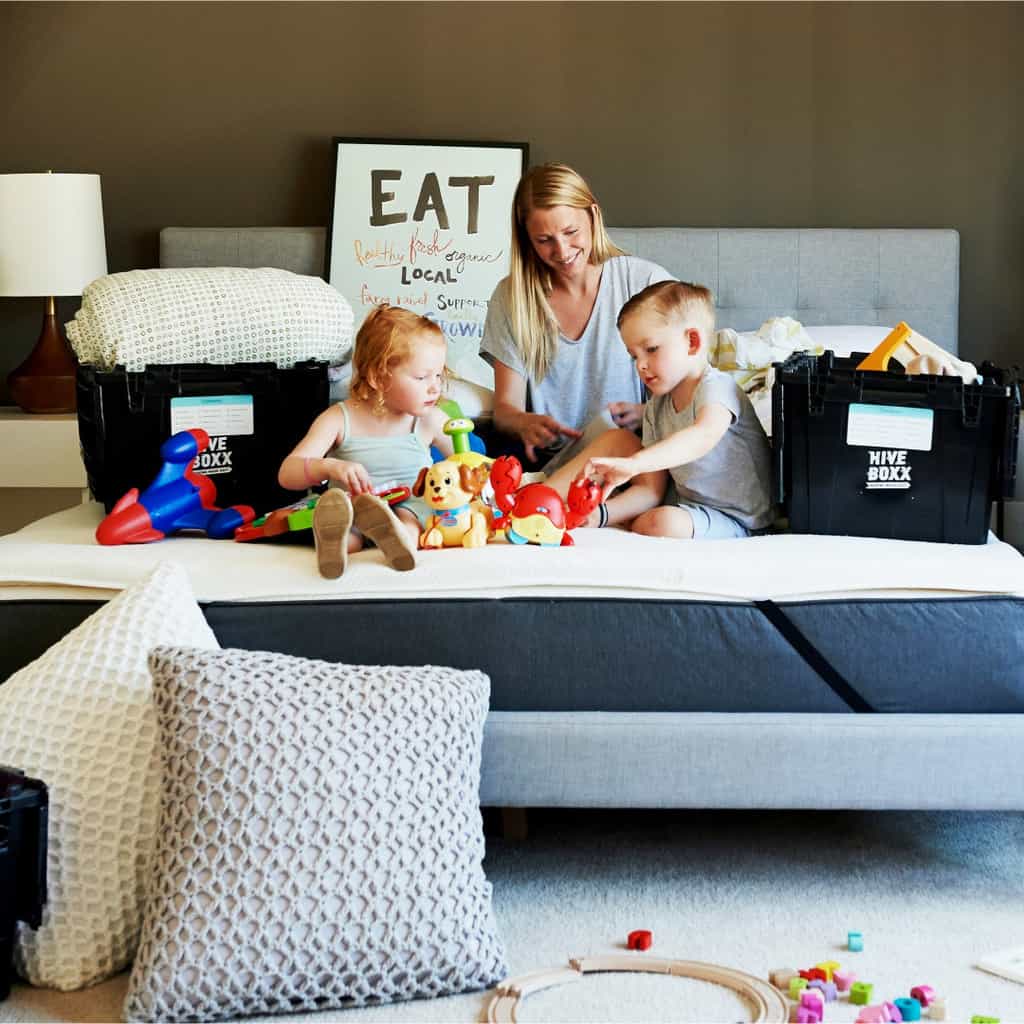It’s not uncommon for parents of grown children to think about downsizing after their kids have moved out of the house. But, for some families, downsizing makes sense even with children still living in the home.
While downsizing might be what’s best for you financially or from a location standpoint, it doesn’t come without challenges. Children get quite used to their homes and develop attachments. On top of that, moving is a stressful life event.

So, how can you make the transition to a smaller home easier for yourself and your entire family? How can you make sure your kids feel good about moving and are excited about a new place?
Help Your Children Adjust
One of the best things you can do is talk to your children before starting the moving process. Often, kids want to be included and feel as though their feelings and opinions are validated. A move can make your child feel like their entire world is being uprooted, so keeping them in the know as much as possible will make a big difference.
A good rule of thumb is to explain what the moving process might look like. When they have a better idea of what to expect, they’re less likely to feel overwhelmed by the experience.
When you finally arrive at your new place, make it a special experience for your child. Consider making their bedroom the first room you “unpack” and decorate. Getting your child involved in the process can make it easier for them, too. You can do that by:
- Allowing them to pick out the paint colours
- Purchasing a few new decorations if they want a specific “theme”
- Having a few of their favourite toys easily accessible to unpack first
Once everyone starts to unpack, the next best thing to do is to get back into a routine as quickly as possible. You might have to change some things about your daily routine to fit a new schedule or lifestyle. But, consistency is key in making children feel safe and comfortable in a new place.
Declutter and Organize

When you move into a smaller home, you’re likely going to have to get rid of some things that take up too much space. You might even consider choosing a more minimalist lifestyle, so your new home doesn’t seem so cluttered. Some of the benefits of minimalism include:
- Spending less money
- Reduced stress levels
- Your home is easier to clean
- It’s better for the planet
Whether you choose to practice minimalism or not, you will undoubtedly need to declutter and organize your belongings before moving. Doing so will make the process much easier, and you won’t be scratching your head or digging through boxes to find something when you arrive at your new home.
One of the best tips to keep in mind is to start cleaning and clearing things away several months before the move. If you can start decluttering 90 days before you ever pack a box, you’ll be in good shape by the time “moving mode” really kicks in. As you do start packing, consider what you’ll keep and what you’ll get rid of. Put “stations” together throughout your home with things you want to take with you, things you’ll toss away, and things you want to donate. You might even consider having a yard sale (even if it’s online) with some of your belongings. It’s a great way for your children to let go of some of their items, knowing they can make money and use it to buy something they’ll love for the new home.
Getting rid of certain items will help you avoid renting a storage unit, saving you money and extra stress during a time that can already be somewhat chaotic.
Take Care of Yourself

Moving is often touted as one of the most stressful life events someone can go through. Moving with children adds to that stress, and moving to a smaller location can also feel overwhelming. While you certainly want to stay organized and diligent in your moving efforts, it’s also important to take breaks. Take time for yourself, and practice self-care as often as possible.
As a busy parent, understand that you don’t have to tackle every aspect of the move on your own. Enlist your family’s help and support as often as possible, even if that means giving your children small tasks or asking your partner to handle something extra so you can take a break.
You may not feel as though you have the time to take an entire day off, but there are small, everyday things you can do to practice self-care that can make a big difference, including:
- Cooking a healthy meal
- Going for a walk
- Journaling
- Meditating
- Being mindful
- Spending time in nature
Think about the things that allow you to de-stress and feel better. Even just a few minutes of self-care each day will go a long way. When you take care of yourself, you’ll be able to take better care of your children throughout the moving process, too.
Moving to a smaller place with your family might seem overwhelming at times. But, by staying organized, keeping your children involved, and taking care of yourself, you can make the transition smoother for everyone and quickly start to enjoy everything your new home has to offer.


